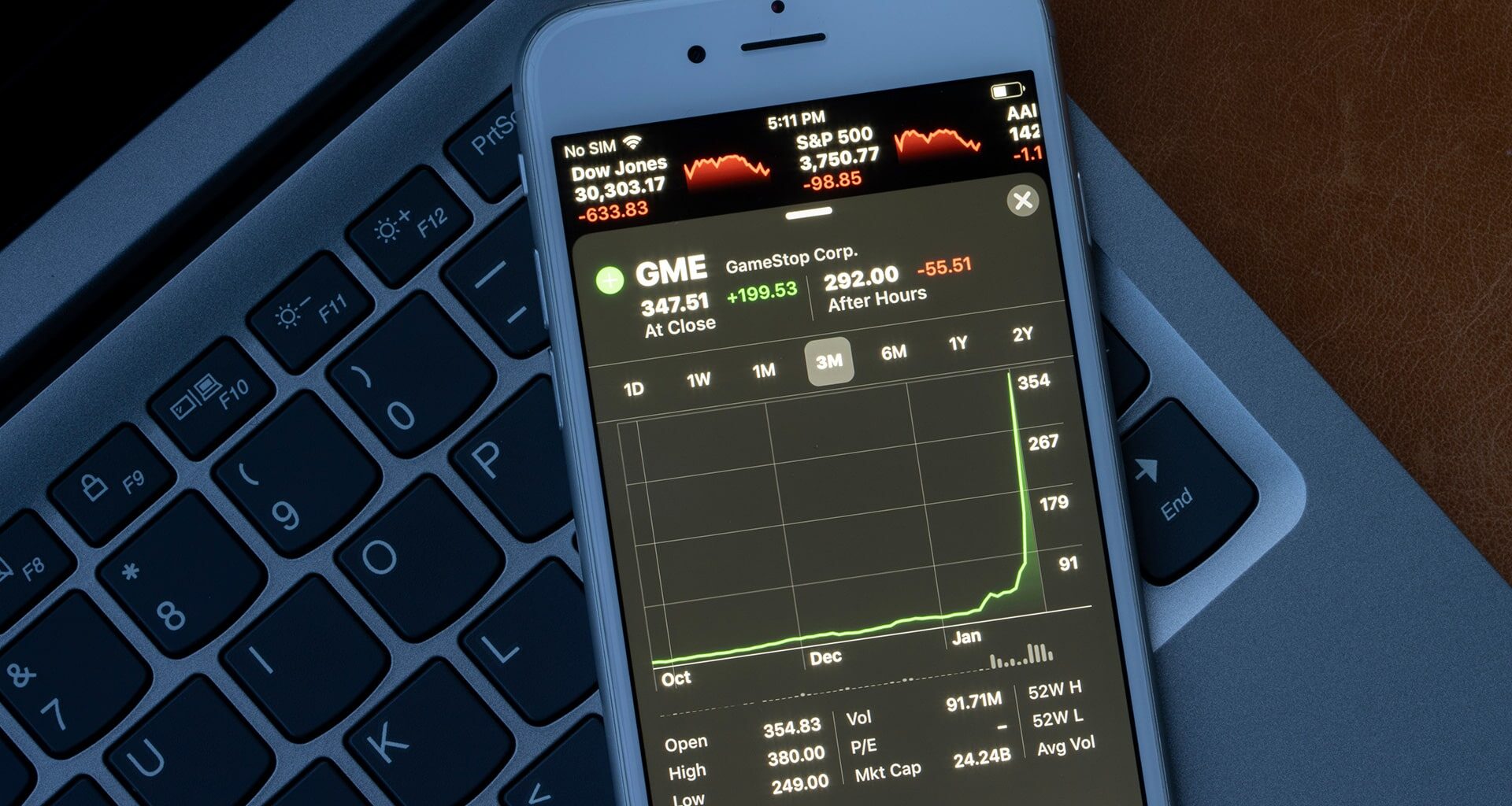Last week saw retail traders take on institutional hedge funds which, in the case of several funds, quickly became a battle for survival against an unprecedented targeting of their short positions in some US stocks. Organising on Reddit and other online message boards, these retail traders focussed their co-ordinated buying volumes on stocks with normally low daily trading volumes and high short interest (a short is when an institutional investor takes a position to benefit from a decline in the share price of a company).
If a hedge fund is short and the stock price rises, this can force the fund to ‘cover’ their short, which involves buying the stock back, further pushing the price up, forcing other short investors to cover, pushing the price up even more. This cycle is called a ‘short squeeze’ and last week saw a coordinated attack on short investors to generate short squeezes in a number of usually low-profile stocks.
GameStop Corp (an otherwise non-descript video game retailer) was one of these targets. Initially the attack worked, forcing funds to unwind short positions and pushing the share price up +138% on Wednesday. This was followed by a 44% decline on Thursday, as some retail investors took profits and new shorts were opened by other institutional funds joining the fight, forcing the price down. At the time of writing (Friday morning) the stock is expected to open the trading session +61%, another blow to the shorts. This extraordinary pattern of trading was mirrored in other stocks last week as the conflict between institutional short sellers and insurgent retail traders spreads.
As interesting as this is to follow, it is also something we at Dominion are avoiding, and we would advise the same for all investors. Speculative trading is just what it sounds like, speculation, a highly risky activity and a distant relation to stock investing.
Pick your battles. This is a fight we are steering well clear of.
Upgrades to (Some) Global Growth
Last Wednesday, we saw a major upgrade to the IMF’s World Economic Outlook. It now sees the global economy growing by +5.5% in 2021 (a 0.3% upgrade from October’s forecast) and +4.2% in 2022. In the US, it sees growth hitting +5.1% this year (a 2% upgrade) while China is expected to grow by +8.1% (largely unchanged). Commenting on these new estimates, the IMF noted it expects the US economy to surpass pre-pandemic levels in 2021, and that China passed this benchmark in Q4 2020. The IMF’s GDP forecasts are not known for having a positive bias, so this upgrade is significant. However, if the IMF is feeling more positive about the world as a whole, it is feeling less positive about Europe. It now expects growth on the continent to come in at +4.2% this year (a 1% downgrade) and it doesn’t see it returning to pre-pandemic levels until the end of 2022.
Disclaimer: The views expressed in this article are those of the author at the date of publication and not necessarily those of Dominion Capital Strategies Limited or its related companies. The content of this article is not intended as investment advice and will not be updated after publication. Images, video, quotations from literature and any such material which may be subject to copyright is reproduced in whole or in part in this article on the basis of Fair use as applied to news reporting and journalistic comment on events.


